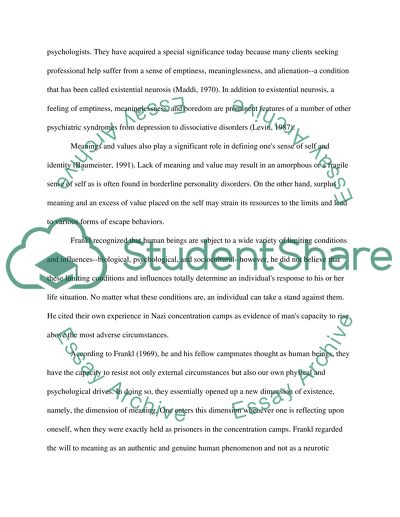Cite this document
(“The Leaning to Meaning: a Study of Frankls Mans Search for Meaning Essay”, n.d.)
Retrieved from https://studentshare.org/psychology/1514157-the-leaning-to-meaning-a-study-of-frankls-mans-search-for-meaning
Retrieved from https://studentshare.org/psychology/1514157-the-leaning-to-meaning-a-study-of-frankls-mans-search-for-meaning
(The Leaning to Meaning: A Study of Frankls Mans Search for Meaning Essay)
https://studentshare.org/psychology/1514157-the-leaning-to-meaning-a-study-of-frankls-mans-search-for-meaning.
https://studentshare.org/psychology/1514157-the-leaning-to-meaning-a-study-of-frankls-mans-search-for-meaning.
“The Leaning to Meaning: A Study of Frankls Mans Search for Meaning Essay”, n.d. https://studentshare.org/psychology/1514157-the-leaning-to-meaning-a-study-of-frankls-mans-search-for-meaning.


